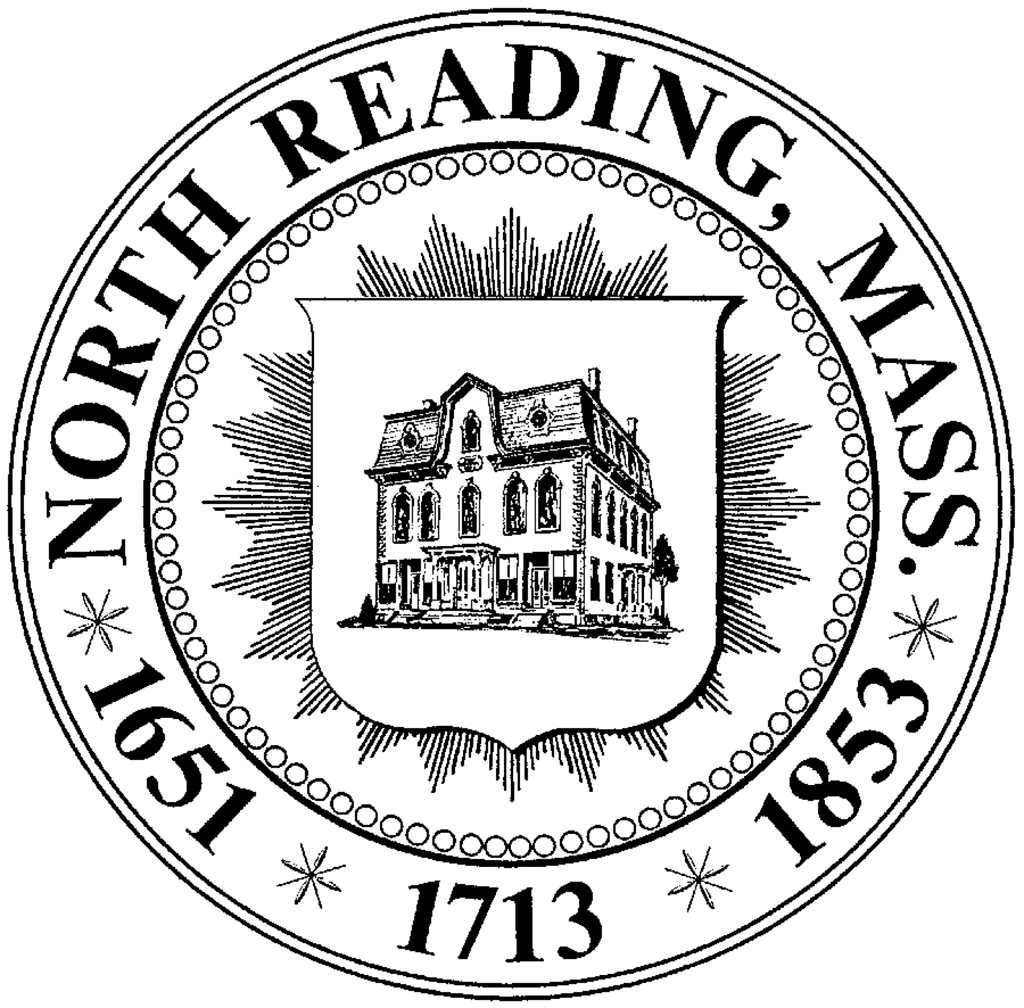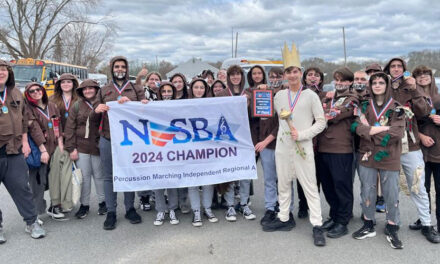Published June 3, 2021

By MAUREEN DOHERTY
NORTH READING — Okay North Reading, it’s time to gather for the Greatest Show on Earth, otherwise known as the Annual Town Meeting.
Where else do you get to spend $80M in the upcoming Fiscal Year to keep the town and all its services solvent and balanced? If Saturday morning’s event does not live up to such top billing, at least you can say you will have participated in an historic Town Meeting because this may be the last time it needs to be held in the great outdoors.
With the relaxing of the mask mandates and other COVID-era restrictions this past week, come October Town Meeting large groups may very well once again be allowed to gather indoors safely.
Masks not required
At the time the June 5 Town Meeting warrant was required to be printed to provide the voters with adequate notice of the annual event, as prescribed under the Town Charter, the state DPH and federal CDC had not yet relaxed the mask mandates. Therefore, the printed warrant every household received in the mail two weeks ago was required to state that masks must be worn and social distancing is required.
Based on the updates in the state as of May 29 and the vote by the local Board of Health May 28, Town Administrator Michael Gilleberto issued following updated statement Wednesday morning on the protocols and protections the town’s voters can expect to encounter upon their arrival at the Arthur J. Kenney Field:
“Town Meeting attendees are asked to observe social distancing while entering, attending and exiting Town Meeting. As was the case at the August/October 2020 Town Meetings, seating on Arthur J. Kenney Field will be socially distanced,” Gilleberto stated.
“While the Board of Health has issued an advisory that encourages all residents to wear masks when they cannot social distance, attendees to Town Meeting will not be required to wear masks. In accordance with the Massachusetts ‘Advisory Regarding Face Coverings and Cloth Masks,’ individuals who are not fully vaccinated are advised to wear a facial covering that covers their nose and mouth,” he added.
Arrive promptly
The meeting is expected to be called to order promptly at 9 a.m. by Town Moderator John Murphy, therefore voters are asked to allow themselves plenty of time to get from the parking lots on either side of the field and to be checked in by the poll workers. Also, it is expected to be warm and there are no tents on the field, therefore, attendees should wear sunscreen, bring a hat, sunglasses – even a hand-held umbrella – whatever you need to stay comfortable. Yes, water bottles are allowed on the field, so don’t forget to bring those along as well to remain hydrated. And there is a state of the art restroom facility on the field — no need for port-a-potties!
Highlights of the warrant:
There are 32 articles on the Town Meeting warrant; however, many of them are routine and will be dealt with quickly; several articles will be passed over as it has been determined that action is not necessary at this time or will be handled in October instead of June.
Omnibus budget
• Article 16 deals entirely with the FY22 Operating Budget which is balanced for both municipal and school services. This article will be broken down into two motions — Available Funds and Debt Service. The grand total of the budget is $80,055,602.
The breakdown, according to a joint presentation by Gilleberto and Finance Director Liz Rourke to the Select Board April 24, is as follows:
• General Government: $31,028,023
• Education (includes assessments for Vocational and Technical regional education): $35,019,208. The North Reading School Department budget consumes $34,276,665 of that total assessment.
• Enterprises (Parks & Recreation, Hillview and Water): $6,239,746. These services are covered through fees collected by the various enterprises for the services they provide.
• Debt Service: $7,768,625.
The Select Board, Finance Committee and School Committee each recommended the budget(s) as per their respective votes.
• Article 17— Fund Retirement Obligations
Voters will be asked to fund $200,000 toward the town’s retirement obligations utilizing Free Cash to fund $60,000 for municipal retirement obligations and $140,000 for public school retirement obligations.
• Article 18— Appropriate Funds to Other Post Employment Benefits Liability Trust Fund (OPEB): Voters will be asked to transfer $300,000 from “Raise and Appropriate” to fund this obligation.
• Article 19— Transfer Funds to School District Reserve Fund for Unanticipated/Unbudgeted Costs for Special Education, Out-of-District Tuition, or Transportation.
This article asks the voters to approve $100,000 through a Free Cash Transfer to fund this reserve fund to assist the school department in not having its budget unexpectedly unbalanced due to the obligation required for such needs, for example, when a student with such needs enters the school system mid-year after budgets have been established. Both the Select Board and FinCom recommend passage.
• Article 21— FY22 Capital Expenditures
The town’s Capital Improvement Planning Committee (CIPC) approved a budget of $2,970,376 plus an additional $75,000 (totaling $3,045,376) on May 10 and all three boards recommend its passage (Select Board, FinCom, School Com). Forty separate projects throughout the town and schools will be funded if it passes. Each line item is called out as to cost, purpose and department benefitting.
It was noted at the hearing by CIPC chair Don Kelliher that they had received over $4.2M in capital improvement requests for FY22 from department heads, leaving well over $1M in identified needs unfunded at this time.
Also noted in the report is that the turf field is approaching the end of its stated useful life as it is over 10 years old. “It is in good working shape and it poses no danger,” Kelliher stated, but he felt it was worth noting that the public should be aware this expense of about $500,000 has been deferred for another year. “They have a lifespan somewhere around 10 years; we still think of it as brand new,” he said.
At the May 10 meeting, Select Board Chairwoman Kate Manupelli, who is one of two SB members who serves on the CIPC, said there was not much disparity in the percentage point priority ranking of which projects must be done this year and which had to be deferred. In the case of the turf field, for instance, an evaluation was done in relation to the potential for concussion if an athlete was to hit the turf. It was determined that the field is safe and was made safer by shoring up those areas in need of more infill to ensure it remains safe. “That is part of the reason why it has to be restored or replaced” after about 10 years of use, she said.
• Article 23— Fund Town Building Repairs. This is an annual line item of $50,000 appropriated from Free Cash used for the continual upkeep of municipal buildings. This year, the Select Board and FinCom both recommend the following projects be funded: $22,500: Town Hall HVAC; $10,000: Exterior Town Hall wall repair/replacement; $7,000: Third Meeting House stormwater improvements (the cellar routinely floods and ruins equipment stored there); $10,500: Code improvements for both the Third Meeting House (built in 1829) and the Damon Tavern (built in 1817).
• Article 25— Appropriate Money for Legal Expenses 20 Elm Street Litigation: Both the Select Board and the FinCom recommend an additional $100,000 toward the legal expenses for 20 Elm St. litigation.
• Article 26— Amend Code of North Reading: Chapter 66-Finance – Add School Rental Revolving Fund and Article 27— Establish Dollar Amount for School Rental Revolving Fund are both related. Article 26 would authorize an amendment to the town bylaws enabling the School Dept. to rent surplus school space and, if approved, to establish a revolving account not to exceed $125,000 to receive payments and make expenditures from those payments (such as renting roof top space for solar panels and retaining the earnings).
Similarly, Article 28— Amend Dollar Amounts for Various Revolving Funds would change the maximum amount that could be expended from such revolving accounts.
• Article 29— Amend Code – Zoning Bylaws – Add Section Small Cell Wireless Facilities. This article would “establish a zoning bylaw regulating the construction of so-called ‘small cell wireless facilities’ on public and private property in town.” It is in preparation for the coming 5G small cell wireless facilities, such as RMLD poles on Rte. 28. If approved, the Community Planning Commission would be given the authority to write and amend the such a policy, such as governing the aesthetics of such wireless facilities, much the same way this was done 20+ years ago when cell companies were erecting huge towers wherever they could to expand cell service.
• Article 30— Amend Code – Zoning Amendments – Addition of Senior Housing Overlay Zoning District and Related Amendments.
This article would address property at 146, 148 and 150 Park St. by developer Bruce Wheeler who proposes a maximum of 50 units (1 and 2 family, multi-family) age-restricted 55-plus units on a combined 4 acres. It would include 8 affordable units in perpetuity (15%) plus a provision drafted by Wheeler’s team to allow the remaining market rate units to be advertised first to those with ties to the community (at the developer’s expense) to the extent allowed by law.
The development would have a mixed use component to it because it involves the Jared McLane House, which Wheeler owns and uses as his office. It is part of the Center Village Historic District and is subject to exterior approval by the HDC. Wheeler proposes to move this building back several feet to improve the sight distance for both the residents and the adjacent North Reading Police Station. Moving it will also enable him to put it on a new, sturdy foundation.
Also, as an off-site improvement to encourage the walkability of the neighborhood, Wheeler has proposed improvements to the base of the Town Common that would create an ADA-accessible walkway from the existing sidewalk at Park and Haverhill Streets up to the bandstand. It would include a couple of benches as well as a spot for a wheelchair to be situated beside a bench. The walkway would continue along the Haverhill Street portion of the common toward the bandstand where the grade would be built up to enable the stairs to be eliminated, thus making the bandstand universally accessible for the first time since it was built in commemoration of the country’s Bicentennial in 1976. He stressed that this plan would not interfere with the use of the hill for sledding, and the owner’s association would maintain the area in perpetuity.
• Articles 31 and 32 are related. Article 32 is a Citizens’ Petition: Amend Zoning Bylaws: Map 18, Parcels 13, 14 and 15 by Sergio Coviello from residential to Industrial/Office (I/O). He purchased the former Seven Acres Poultry Farm last year after voters at Town Meeting rejected its right of first refusal. He plans to move his electrical contracting business to the site and redraw the lot lines to enable the two residential homes to remain (this proposal was described in detail in last week’s Transcript. The story is still available online for free at localheadlinenews.com).




